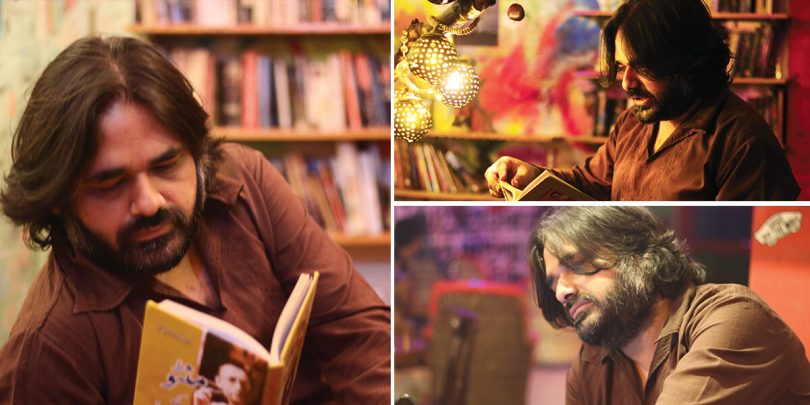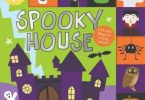Meet Saji Gul, one of the most prolific writers of the modern era in Pakistan. Not only is he the mind behind the magnum opus Badshah Begum but has also penned Ibn-e-Hawwa, Dour, O Rangreza and Iltija during the last five years. He claims that his dramas aren’t romantic but issue-based, however, his fans tend to disagree, for they haven’t been able to witness sizzling chemistry between the leads since O Rangreza and get surprised when they are told that patriotic telefilm Hangor came from the same pen.
I had a chat with the talented writer ahead of the first episode of his next big play Badshah Begum, where he explains the idea behind the drama, his philosophy behind writing the script, and the reason why he didn’t create a character for his talented son Shees.
How many years did it take you to write the final draft of Badshah Begum?
It took me at least five years to bring Badshah Begum in the form it will be screening next week. I started writing the script when O Rangreza was on air, and after writing one episode, took a break. In 2018, I wrote four more episodes after which I wrote 16 episodes continuously, which is where the production house realized that it was going to be a very expensive serial. We thought about converting it to a web series but I must credit Rafay Rashdi, the producer who ensured that BB didn’t change platforms, and in 2021, due to his persistence, we had the final draft that went on the floors.
From where did you get the inspiration of BB, considering Pakistan hasn’t attempted such plays in recent times?
I didn’t take any inspiration from our TV dramas for BB; it is the result of an incident from our history that inspired me to go and attempt something like that. There is an audience for that kind of TV show in Pakistan but sadly international series cater to that. Even the legendary Gulzar sahab moulds those royal stories into his film scripts, replacing gangsters with kings; we tried to do the same thing, by replacing pirs with royals. The battle between families is common in our feudal system although BB shows the true picture where the head of the family makes sacrifices instead of sacrificing his pupil.
TV plays in Pakistan revolve around romance and your O Rangreza followed that pattern. What made you change the gear and come up with something as royal as BB?
I have never intentionally written romantic stories; I like to write issue-based scripts. Romance does form one of the layers of my story, but you can’t call my scripts romantic in any way. Even in O Rangreza the plot revolved around a father and a daughter, and the romance was done on the sidelines.
Romance will take a backseat in BB as well, the idea of which entered my mind because of my keen interest in history. Since we haven’t tried anything on that front, maybe because of budget constraints, I decided to go where no one has gone before. The last attempt in that regard couldn’t do well for unknown reasons, but I took it up as a challenge, and believe that if BB does well, others will follow suit.
For someone who hasn’t lived in a feudal environment, was it difficult for you to carve a story set in that setting?
I might not have lived the life of a feudal but I have observed many of my friends who belong to that background. At first, outsiders like me don’t understand the reasoning behind their steps but trust me, everything they do has a story behind it. Don’t be surprised if you find something weird in the initial episodes of the drama, but let me assure you, such things not only are happening in the feudal system but have been part of the Indo-Pak culture since the Mughals. They would do such things to keep the powers within themselves and would go to any length to suit their power structure.
Did you ever feel that BB will not see the light of the day?
As a writer, I believe that written material never gets old; the context might go out of style but the script doesn’t. One can always upgrade it when the time comes, and that’s what I had faith in while waiting for BB to see the light of the day. I knew it for a fact that had BB been aired a few years earlier, it might not have done well but now that the audience has developed the taste for such projects, I am hopeful they will be more receptive to it this time.
Do you agree with those who are comparing BB to Game of Thrones because of the regal background and the family politics?
As such there is nothing in common between the two but yes, since they both are set in a regal surrounding, revolve around the royal family and their history, you can put the two in the same category. Like Game of Thrones, there is no extra character in this play, and the suspense will keep you on the edge of your seat for nothing is certain here as well.
At times you are writing on social issues, and on other occasions, you are coming up with a patriotic script like Hangor. How do you change gears like that?
As a writer, it is my job to diversify and although many believe that the tone of my stories is feminist, it is instead gender-driven. Be it O Rangreza or the upcoming Mr. & Mrs. Shameem (formerly Mann Jogi) I try to keep it as close to reality as possible. Whatever the setting, I talk about gender, and play with the idea of the perfect male, or the perfect female in society. As for the patriotic stuff, it is good to divulge into that time and again; Hangor was a commissioned project to which I gave my best.
Do you come across people who are still surprised to find out that the writer behind Ibn-e-Hawwa and BB are one and the same?
Many people are surprised to know that both Ibn-e-Hawwa – a mohallay ki kahani – and Badshah Begum – a mehlon ki kahani – are written by me and it makes me proud for that is the biggest compliment for a writer. A writer shouldn’t be a dictator, and instead of dictating a story, should be a part of it. The characters and their psychology should be so grounded that you don’t have to write dialogues for them; whatever they say should come naturally to that character and that has always been my style.
Are you happy with the final cast of BB?
I have learned that whenever you write with a specific cast in mind and are unable to acquire those actors, then it doesn’t end well. That’s why I always leave my options open and create characters instead of waiting for so and so actor to play that character. That’s why I am very happy with the cast that we have gathered for BB. It is a story for actors who like to do character-driven roles, and whoever owns the character, will rise above the rest.
And why did you not write a character for your son Shees, who has been missing in action since Mere Paas Tum Ho?
Because I don’t believe in nepotism (laughs). Actually, neither was there a character for him in this play, nor did anyone ask me to write one for him, otherwise who knows he might have been here as well.







